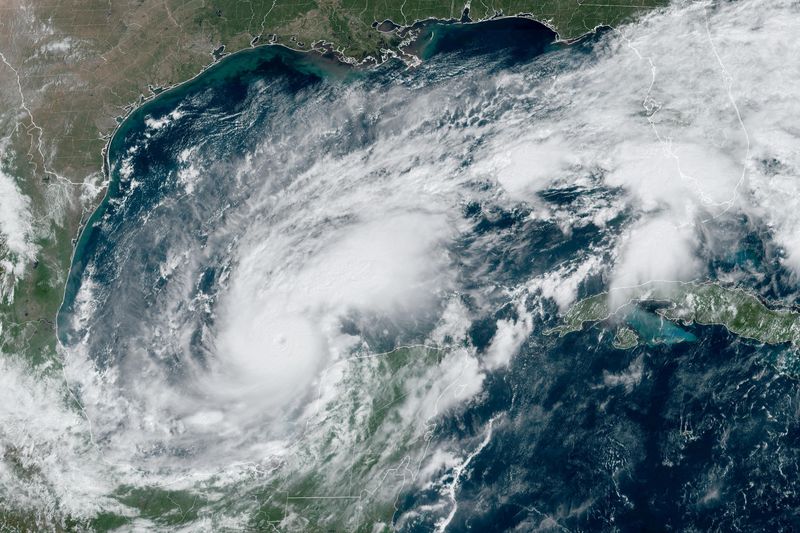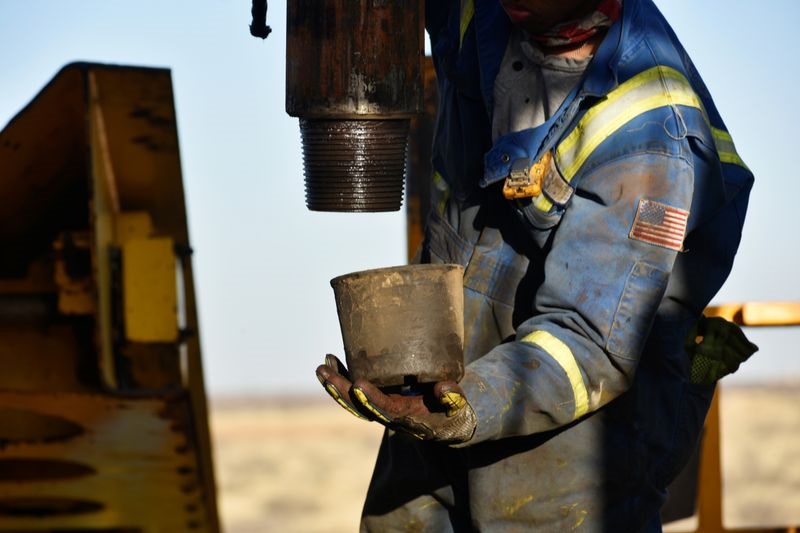By Marianna Parraga and Anushree Mukherjee
HOUSTON (Reuters) -At least one oil and gas platform in the U.S. Gulf of Mexico was closed on Monday and Florida ports imposed restrictions on shipping as Hurricane Milton rapidly intensified.
Most energy infrastructure on the U.S. Gulf Coast, including oil and gas production facilities, LNG plants and refineries, is expected to be out of the storm’s path, but the closure of terminals could temporarily disrupt exports and imports.
Florida was the sixth-largest state exporter of goods last year, according to the Office of the US Trade Representative.
Meteorologists predict storm surges of 10 to 15 feet (3.05 to 4.57 meters), wind gusts of 140 miles per hour (mph) and say more than 2 feet (60 cm) of rain is possible along Florida’s Gulf Coast in the area where Milton is located land, probably near Tampa.
“Milton is a potentially catastrophic Category 5 hurricane,” the US National Hurricane Center (NHC) said on Monday.
Some weakening is expected before Milton reaches the west coast of the Florida peninsula on Wednesday, but it is forecast to “remain an extremely dangerous hurricane through landfall,” the NHC added.
President Joe Biden approved an emergency declaration for Florida. The White House urged those in the storm’s path to make immediate preparations.
Electricity supplier Duke Energy (NYSE:) said it was mobilizing approximately 10,000 emergency responders in Florida as it prepared for more than 1 million power outages related to Milton.
American energy producer Chevron (NYSE:) said Monday that all personnel had been transported from the Blind Faith platform in the Gulf and the facility was closed.
Blind Faith, located 155 miles southeast of New Orleans, is Chevron’s deepest water development in the world. It produces oil from four wells and has two flow lines that deliver crude oil and gas to a platform moored 2,000 meters deep.
Production from Chevron’s other assets in the Gulf of Mexico remained at normal levels, the company added.
Oil and gas producer Woodside (OTC:) Energy is monitoring weather conditions in the Gulf and plans to deploy a response plan to deal with the storm, if necessary.
The Florida ports of Cedar Key and Sand Key were closed to shipping traffic, while Key West prepared to close early Tuesday, the U.S. Coast Guard said. Navigation restrictions were imposed at nearly all remaining ports in Florida, including Miami, Port Everglades, Palm Beach, Tampa, St. Petersburg, Fort Myers, SeaPort Manatee, Panama City, St. Joe, Port Canaveral, Jacksonville and Fernandina.

Other ports in Mississippi and Alabama that handle the import and export of oil and fuel, including Pascagoula and Mobile, remained open Monday, the Coast Guard said.
LNG facilities on the U.S. Gulf Coast are largely outside the storm path. However, the United States exports marginal volumes of LNG in ISO containers from the ports of Miami and Fort Lauderdale, data from the US Department of Energy shows.


